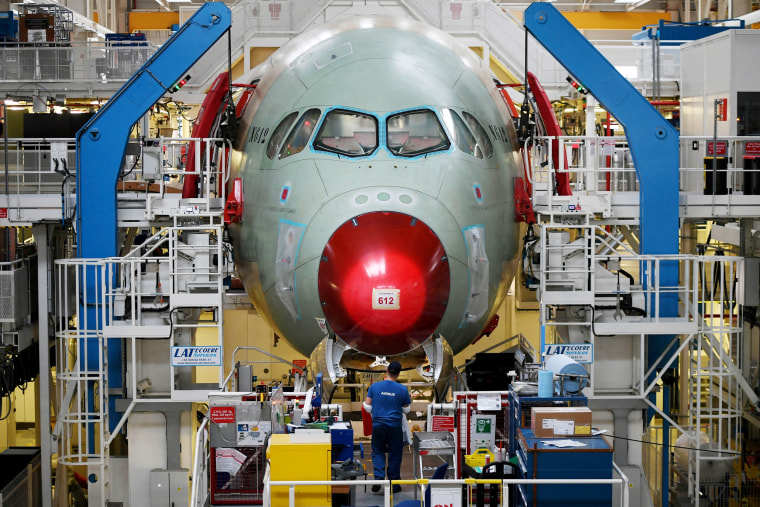
FAA Reveals Shocking Possibility: Boeing and Airbus Jetliners May Contain ‘Fake’ Titanium!
The aviation industry is witnessing a significant ripple effect as allegations surface regarding Boeing and Airbus, two of the titans of the industry, using alleged ‘counterfeit’ titanium in the construction of their planes. According to the U.S. Federal Aviation Administration (FAA), these two aviation giants may have unknowingly used this inferior quality titanium obtained from a Russian supplier.
This extraordinary revelation concerning the potential use of counterfeit titanium in Boeing and Airbus planes is not just a matter of corporate honesty or reputational damage. It strikes at the very heart of aviation safety and potentially places passengers and crews in jeopardy. As these two companies dominate the aviation industry and are responsible for most of the commercial aircraft currently in operation, the potential scale of this issue is truly global.
The crucial component in question here is titanium, an incredibly strong and light metal that is resistant to corrosion and has a high melting point, making it an essential material in aviation construction. This versatile metal has applications ranging from aircraft bodies to engine parts, and its integrity is fundamental to the overall safety and performance of an aircraft.
The Russian supplier, Avisma, is one of the largest producers of titanium worldwide, counting both Boeing and Airbus among its customers. The U.S. Department of Commerce issued a list last year stating Avisma as a suspected ‘counterfeit risk.’ This unprecedented move has instigated FAA’s claims and led to thorough investigations into the supplier’s practices, arousing suspicion on the quality of the titanium provided by Avisma to these aviation giants.
Boeing and Airbus, caught in the crosswinds of this scandal, may have unwittingly procured and used this ‘counterfeit’ titanium in their aircraft manufacturing process. This is not a simple balance sheet issue for these juggernauts; it now threatens to become a substantial logistical and safety nightmare.
Pending the ongoing investigation, the FAA is providing no in-depth details. However, if these allegations hold, it may require extensive aircraft safety tests, costly retrofitting of aircraft, and potential groundings. It poses the potential for considerable disruptions in the airline industry. While no immediate danger has been reported, the FAA’s hints towards a possible safety concern suggest a longer-term disruption that could involve rigorous checks and replacements.
Meanwhile, both Boeing and Airbus have expressed their uncompromising stance on the seriousness of these allegations and their commitment to safety, integrity, and quality. They are closely working with the FAA, following guidelines, and monitoring ongoing investigations vis-à-vis their supply chain for titanium.
While the exact repercussions still hang in balance as the investigation takes its course, the revelation has certainly underscored the importance of stringent supplier checks and material veracity in the aviation industry. This scenario also serves as a stark reminder of the expansive and intertwined nature of world supply chains and the potential hazards that can arise when components, such as titanium, are not as they are purported to be.
The aviation industry prides itself on its exceptional safety measures and structures put in place. This potential scandal surrounding Boeing and Airbus underlines the paramount importance of continuing that trend, underscoring the grave responsibility each player in this industry carries. This time, the story isn’t merely about competition between the two industry giants; it’s about the credibility and reliability of the aviation industry at large.
